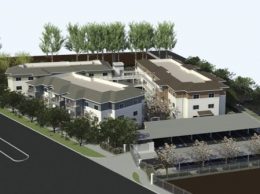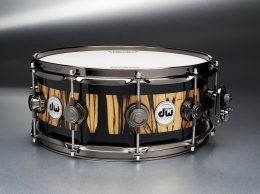Despite Gov. Perry’s visit, Haas has yet to say ‘I do’ to Texas
Officials at Haas Automation appeared flattered by a pre-Valentine’s Day recruitment visit by Texas Gov. Rick Perry, but did not reveal any definitive news about the company’s expansion or relocation plans on Tuesday.
The Oxnard-based machine-tool maker was courted by Perry after saying publicly that it is considering locations outside of California to expand beyond the million square feet of manufacturing space it occupies in Ventura County.
“We have already visited sites in Arizona, Texas, and North Carolina. We have to say, we’re very impressed that a governor from another state would come to visit us,” Haas spokesman Peter Zierhut said in a media statement on Feb. 12, when Perry toured the company’s 86-acre Oxnard campus.
Haas is the biggest machine-tool builder in the U.S. and one of the largest in the world. The company employs more than 1,500 people in manufacturing and engineering jobs and reported revenues last year of close to $1 billion, up from $868 million in 2011.
But Haas has also said it fears the Golden State’s tax and regulatory environment will stifle future growth.
“Our employees, the local community, and state officials have known about our intentions to expand our facilities for more than a year,” Zierhut said in the statement. “The city of Oxnard and the county of Ventura have been very supportive of us in the past, and they continue to be supportive. But the state of California has become a very expensive place to do business as a manufacturing company, so we are exploring other options for expansion.”
Outside of the U.S., Haas has sales offices in Belgium, China and India, Zierhut said, and the company exports more than half of its product overseas. It also competes with manufacturers in China, Japan, Korea, Taiwan and Europe. “Many of these countries have a much lower cost to manufacture and do business, and often offer ‘lower cost’ machines to our customers, which threatens our market share in the United States,” he said.











